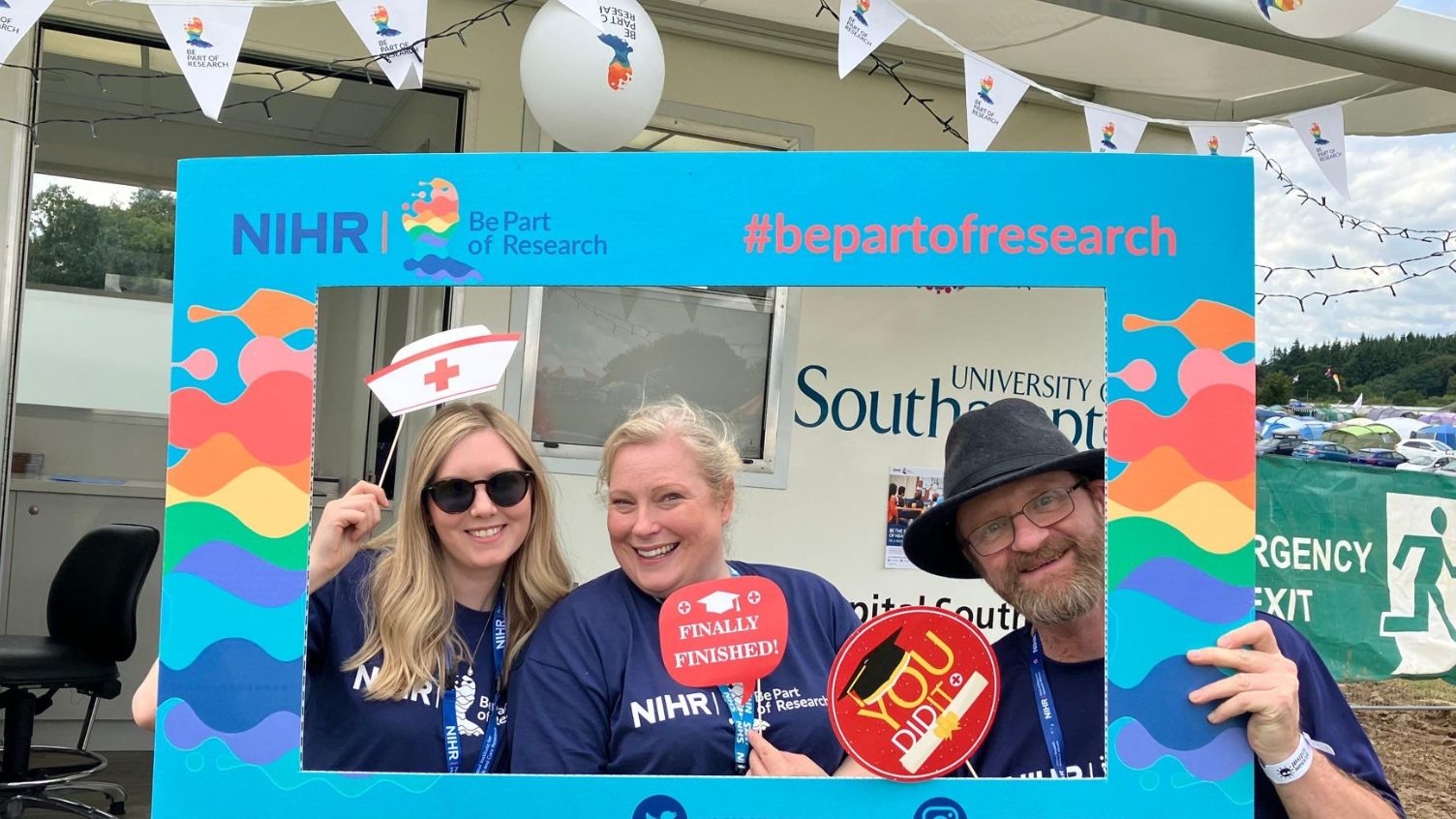Rare Disease Day: ‘My life is a daily battle’
- 26 February 2021
- 4 min read
Vince Nicholas (right) with his brother Neil. Both live with the rare disease amyloidosis.
Vince Nicholas, who lives with the rare disease amyloidosis, tells how the condition has 'decimated' his family.
Vince Nicholas is a case study in what it is like to live with a rare disease.
In his home near Salisbury there is a photograph featuring 24 people. The group is a wedding party, taken in 1968.
Of the 24 people in the photo, 20 are members of Vincent's family. Out of these 20, only two do not have the disease and survive today. The others have either died or are living with the direct results of the rare disease ATTR Amyloidosis.
Amyloidosis is the name of a group of rare and serious conditions caused by a build-up of an abnormal protein called amyloid that deposits in organs and tissues around the body.
This build-up of amyloid makes it difficult for the major organs and tissues to work properly. Without treatment it can lead to organ failure and death.
There are several kinds of amyloidosis and each one behaves differently. Light-chain (AL) amyloidosis is the most common type, and transthyretin (ATTR) amyloidosis often runs in families - as in Vincent's case. About 400 people in the UK have the latter type.
The disease is characterised by nerve and organ damage with day-to-day symptoms including diarrhoea, weakened eyesight, loss of feeling in the hands, feet and legs as well as chronic pain and numbness.
"Amyloidosis has decimated our family, it really has," said Vince. "My mum lived with various symptoms for a couple of years before doctors suggested that it might have been amyloidosis. Amazingly, my dad asked a doctor he met his village shop if he knew any amyloidosis specialists and it was this doctor that put my dad in touch with the National Amyloidosis Centre - then based at the Hammersmith Hospital."
Once Lillian had been diagnosed, Vincent and his twin decided to see if they had the transthyretin (TTR) gene mutation, through a very specific blood test, to establish whether they too had amyloidosis. They did.
Although Vincent's mother Lillian was diagnosed with ATTR Amyloidosis, it was too late for substantive treatment and she died in 1991 at the age of 66. His grandmother Edna also died due to the disease.
Thirty years on, Vincent and his younger brother Neil continue to suffer the effects of ATTR Amyloidosis. Vincent's twin brother Keith passed away due to amyloidosis in 2015 at the age of 56. Both he and Vincent received a liver transplant in 2010 that was experimental in the treatment of amyloidosis at the time. Their older brother and younger sister do not have the disease.
Vincent said: "I just have to accept that there are some things that I cannot do anymore. I started getting symptoms when I was 48 and I am now 61. My nerve damage is bad: I have to be very careful with what I eat because my body will just reject it. I am never sure what foods will affect my body from one day to the next. I cannot use my hands very well because I have no feeling in them. I get very tired and walk with a stick because of the lack of sensation in my feet and lower legs.
"So I just have to live day-to-day. I had to give up my job as a Contract Manager for a digital broadcasting company in 2017 because I just could not function as I had done before. My life is a daily battle."
Research has created a shaft of light at the end of what was a previously very dark tunnel.
A new drug called patisiran has helped slow down the progression of Vincent's illness, as it has for his younger brother Neil. Through the National Amyloidosis Centre - now based in the Royal Free Hospital and part of University College London Centre for Amyloidosis and Acute Phase Proteins and supported by the NIHR Biomedical Research Centre at University College London Hospitals NHS Foundation Trust - Vince was able to take part in a clinical trial of the drug for six months before it was licensed through the National Institute for Health and Care Excellence - known as NICE. The drug then became available through the NHS.
Another drug, inotersen, has also been licensed for the treatment of amyloidosis following clinical trials.
Vince added: "When I was offered the chance to take part in the trial of patisiran it gave me hope. This is what I would say to others thinking about taking part in research: being part of a trial gives you hope."
Rare Disease Day is this Sunday, February 28. The main objective of Rare Disease Day is to raise awareness amongst the general public and decision-makers about rare diseases and their impact on patients' lives.
• To find out more about rare diseases visit the Rare Disease Day website.
• To find out more about research taking place in your area go to the NIHR's Be Part of Research portal.
• For more information on the UK ATTR Amyloidosis Patients Association, visit their website: https://ttramyloidosis.uk/


